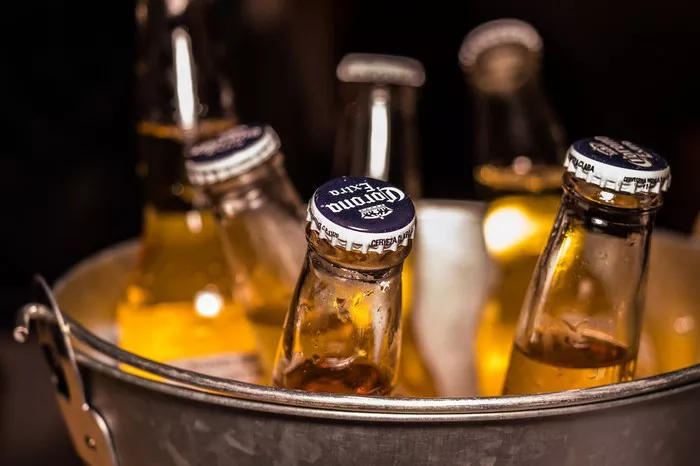Premium ginger beer, with its zesty and invigorating flavor, has become a sought-after beverage in recent years. Its popularity has raised questions among consumers regarding its alcoholic content. The query, “does premium ginger beer have alcohol?” resonates with many who seek clarity about this effervescent drink. Let’s delve into the nuances of ginger beer, explore its production process, and dissect whether premium versions contain alcohol.
The Origins of Ginger Beer: A Historical Perspective
Ginger beer traces its origins to the 18th century in England, where it was initially a fermented alcoholic beverage made from ginger, sugar, water, and sometimes lemon juice or other flavorings. During this era, the fermentation process naturally produced alcohol, albeit in lower quantities compared to other alcoholic drinks.
Evolution of Ginger Beer Production
Over time, ginger beer underwent significant transformations. With advancements in technology and brewing techniques, manufacturers introduced non-alcoholic versions by altering the fermentation process. This transition aimed to cater to a broader consumer base, including those who preferred non-alcoholic beverages.
Understanding the Production Process
The production of ginger beer involves several key steps that determine its alcoholic content. Traditional methods involve the fermentation of ginger root, sugar, and water using yeast. This fermentation process converts sugars into alcohol and carbon dioxide. However, modern commercial production often includes halting the fermentation before significant alcohol accumulation, resulting in a non-alcoholic beverage.
Alcohol Content: Debunking the Myth
Premium ginger beer typically contains minimal alcohol, if any. Most commercially available ginger beers label themselves as non-alcoholic. However, trace amounts of alcohol may naturally occur due to the fermentation process. This minute alcohol content is usually well below the legal limit set for non-alcoholic beverages in various regions, ensuring it’s safe for all ages.
Regulations and Alcohol Levels
Different countries have varying regulations concerning what constitutes a non-alcoholic beverage. In the United States, beverages containing less than 0.5% alcohol by volume (ABV) are considered non-alcoholic. The negligible alcohol content in premium ginger beers adheres to these stringent regulations, making them accessible to a wider audience.
Varieties of Ginger Beer: Exploring the Choices
The market offers an array of ginger beer options, ranging from conventional to premium variations. Craft or artisanal ginger beers, often labeled as premium, pride themselves on using high-quality ingredients and unique brewing methods, contributing to their distinct flavor profiles.
Factors Affecting Alcohol Content
The alcohol content in ginger beer can be influenced by various factors during the brewing process. These factors include the duration of fermentation, the type and quantity of yeast used, and the temperature at which fermentation occurs. Meticulous control over these variables helps manufacturers regulate alcohol levels to maintain a non-alcoholic status.
Labeling Transparency and Consumer Awareness
In recent years, there has been a heightened emphasis on transparency in labeling. Manufacturers of premium ginger beer prioritize clear and accurate labeling to inform consumers about the product’s ingredients and alcohol content. This transparency enables consumers to make informed decisions based on their preferences and dietary restrictions.
Non-Alcoholic Alternatives: Meeting Consumer Demands
To cater to individuals seeking entirely non-alcoholic options, the beverage industry has witnessed the emergence of alcohol-free ginger beers. These variations undergo a specialized production process that ensures no alcohol accumulation, appealing to a broader demographic that includes teetotalers and individuals avoiding alcohol for health or personal reasons.
Health Implications and Consumption Patterns
The minimal alcohol content in premium ginger beer holds minimal health implications for the average consumer. For those abstaining from alcohol completely due to medical reasons or personal choice, opting for explicitly labeled non-alcoholic versions remains the safest choice. Additionally, understanding individual tolerance levels and consulting healthcare professionals is advisable for those with specific health concerns.
Mixology and Culinary Applications
Ginger beer’s versatility extends beyond standalone consumption. It serves as a popular ingredient in mixology, featuring prominently in cocktails like the Moscow Mule and Dark ‘n’ Stormy. The non-alcoholic nature of most premium ginger beers makes them a staple ingredient in mocktails, appealing to individuals seeking flavorful non-alcoholic alternatives.
In Conclusion
While the question “does premium ginger beer have alcohol?” may spark curiosity, the answer leans towards minimal or negligible alcohol content in most premium variations. Modern production methods and adherence to stringent regulations ensure that the alcohol levels in these beverages remain well within the non-alcoholic range, making them suitable for a wide audience.
Premium ginger beer continues to captivate consumers with its bold flavors and refreshing qualities. Whether enjoyed on its own or used as an ingredient in various culinary creations, the allure of this beverage persists, offering a delightful experience without significant concerns regarding alcohol consumption.
As consumer preferences evolve and demand for non-alcoholic options rises, the beverage industry remains responsive, providing a spectrum of choices that cater to diverse tastes and lifestyle choices. With transparent labeling and adherence to regulatory standards, premium ginger beer stands as a testament to innovation, delivering a satisfying beverage experience while meeting the needs of a modern, health-conscious market.


